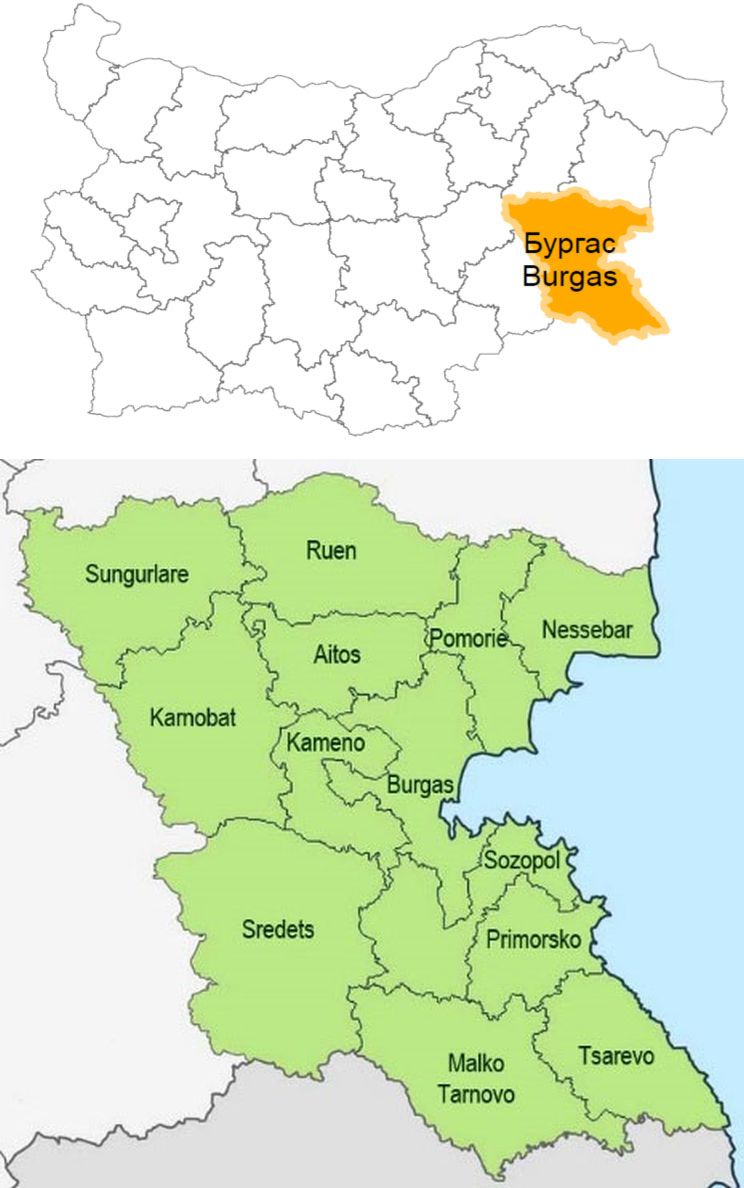Water supply and sewerage infrastructure in Burgas province, Bulgaria is being improved to increase its efficiency, cut operating costs and align it with national and EU drinking water, wastewater collection and treatment and sludge disposal legislation.
- 03 September 2021
Almost 280 000 inhabitants will have a more reliable water supply thanks to the project. The new and upgraded wastewater treatment infrastructure will be able to handle pollution loads equivalent to those normally produced by some 53 000 people.
A two-stage process
The project is to be implemented in two stages: the first comprises work in urban areas and outside protected areas within the Natura 2000 network; the second covers work within Natura 2000 areas and will begin once conservation objectives for the protected sites have been set and assessments conducted.
In all, around 7 km of water supply infrastructure will be laid and 158 km will be rebuilt. Further supply elements include constructing facilities for treating process water from the Kamchia and Yasna Polyana drinking water treatment plants, replacing sections of the Kamchia and Yasna Polyana intake diversion systems and setting up district metered areas and pressure-relief mechanisms.
Regarding wastewater collection, some 73 km of sewerage pipe will be laid and 22 km will be rebuilt, sewage pressure tanks and rainwater and wastewater collectors will be renovated, and new rainwater collectors will be installed.
Among the wastewater treatment upgrades are the construction of a wastewater treatment plant (WWTP) at Karnobat and extension of the Meden Rudnik WWTP. A sludge stabilisation facility is to be built at the Obzor WWTP.
Sludge drying, anaerobic digestion and cogeneration installations are to be set up at the Burgas WWTP sludge treatment facility. Wastewater from Kiten, Lozenets and Primorsko will be treated at the Kiten WWTP under a new centralised system.
Better quality of life
Water and wastewater systems in and around Burgas face several problems. Water in the supply network gets contaminated, there are frequent pipe bursts, high water losses, supply interruptions and low water pressure. Much of the water in the area does not meet EU standards, and wastewater from the drinking water treatment process is discharged untreated.
Sewerage networks are incomplete in many places and the existing system is in bad condition. This leads to infiltration and overflows, high operating costs and low reliability. The diameters of sewer pipes are below the minimum required and connections between pipes are broken. Sewers in some settlements do not separate wastewater from surface runoff.
Many WWTPs are in a poor state of repair, do not meet emissions limits and receive inflow volumes that exceed their design capacity. Certain areas lack access to WWTPs, and sludge treatment does not always comply with EU rules.
A healthy environment and economy
Creating around 10 permanent jobs, the project is aimed at improving quality of life for residents by protecting water sources and guaranteeing their sustainable use. Water losses from the network will be reduced from 48 % to 33 %. Ensuring high-quality drinking water should support economic growth and, in turn, generate employment.
For wastewater, the upgrades will increase connection rates and the capacity of collection and treatment systems, reduce infiltration of sewers, prevent discharge of untreated wastewater and provide for proper sludge disposal.
Total investment and EU funding
Total investment for the project “Integrated water project for the district of Burgas” is EUR 237 005 602, with the EU’s Cohesion Fund contributing EUR 63 334 763 through the “Environment” Operational Programme for the 2014-2020 programming period. The investment falls under the priority “Water”.

